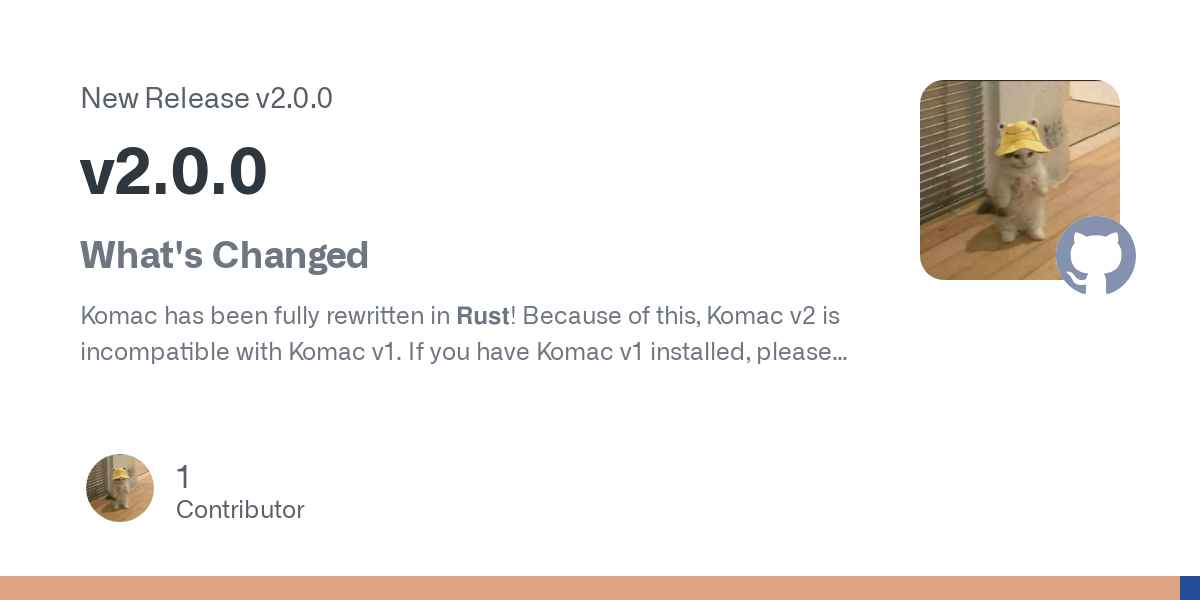In other news, URLs are now delimited by a space rather than a comma when updating manifests. Komac uses a very small amount amount of memory and has been heavily optimised to minimise memory usage (especially heap allocations). Updating Android Studio (a 1GB+ binary) consistently took just ~3.5mb memory. Komac now has a significantly more accurate way of checking if an installer was created with Inno/NSIS instead of just checking for some magic bytes. As of this release, the uncompressed x64 portable binary stands at just ~7.5mb and doesn’t require runtimes like the JVM. The Windows installers add Komac to path (allowing you to just run komac in a terminal) and stand at less than 3.5mb.



I have no idea what this is about, but was kotlin native considered here? And what ruled it out in favour of rust?
I’ve seen multiple JVM languages going the route of AOT/native compilation and now taking the spot of systems languages in some use cases (CLI utils, low footprint “cloud native” stacks, things requiring tight os-level integration) with often outstanding performance.